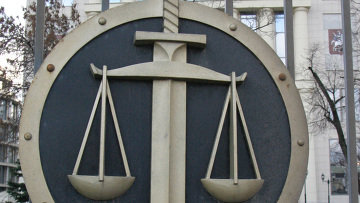MOSCOW, May 15 (RAPSI) - According to a review of Russia’s Draft Law Amending the Law on the Status of Judges released by the international Rule of Law NGO International Commission of Jurists (ICJ), while some amendments will serve to improve the matters for the Russian judiciary, more comprehensive legislative reform is necessary.
A report published by the ICJ last December concluded that judicial independence was undermined in Russia by an arbitrary and inconsistent system of disciplinary action.
The ICJ lauded the introduction of a statute of limitations for disciplinary action against judges, noting that previously, the misdeeds of judges had not been bound by any statute of limitations. Having seen this as a major source of disciplinary abuse within the judiciary, the ICJ praised the introduction of a statute of limitations as an important safeguard.
The review spoke less favorably of the draft law’s definition of disciplinary misconduct, due to its vagueness and the fact that it does not lend itself to easy identification of the sorts of indiscretions that would fall within its scope.
The draft law defines disciplinary misconduct as: ““[…] a culpable act (omission) in the course of official duties as well as outside of official duties incompatible with the present law and (or) provisions of the Code of Judicial Ethics adopted by the All-Russia Congress of Judges, which has led to derogation of the authority of the judiciary and caused damage to the reputation of the judge […]”.
To this point, the ICJ notes: “It is a general principle of both criminal and administrative law that prescriptions of conduct must be clearly – not vaguely – defined in law. Failure to provide an adequate definition in this respect falls afoul of the principles of legality.”
To remedy the situation, the review suggested the introduction of a non-exhaustive list of conduct that could incur disciplinary action. Relevant conduct could include such indiscretions as the failure to act impartially and undue consultation with government officials.
The ICJ praised the introduction of a reprimand as an additional penalty for disciplinary misconduct under the draft law, noting that the present law stipulates only warnings and dismissal as disciplinary sanctions. Still, the review notes that the present options for disciplinary action are insufficient to ensure proportionality under the law. Accordingly, the organization proposes the introduction of additional penalties, such as suspension, demotion, transfer, or additional training.
In a move lauded by the ICJ, the draft law provides that the dismissal of a judge should be treated as an exceptional measure. Still, to ensure against the arbitrary dismissal of judges, the organization encourages the introduction or a range of alternative penalties and sanctions.



